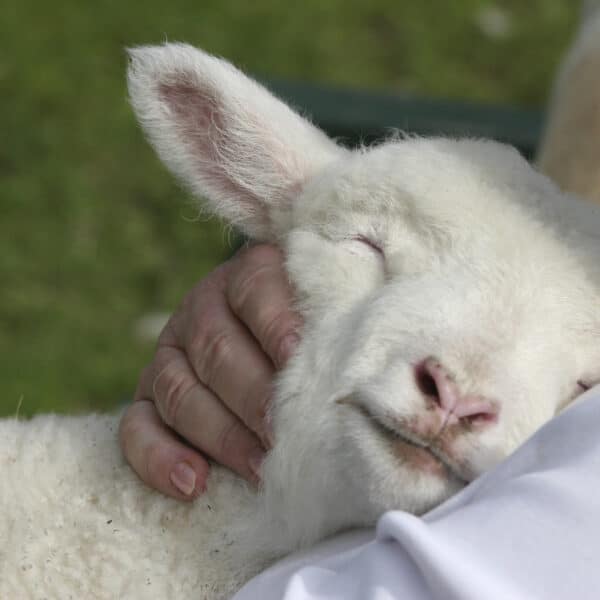 A new, original service has been set up in Tower Hamlets in London by the local Clinical Commissioning Group, a health partnership of three local surgeries and a city farm. The service, called ‘Furry Tales’, enables people with dementia to visit (or be visited by) and interact with animals at the farm. It also gives an outdoor experience among farm plants and herbs.
A new, original service has been set up in Tower Hamlets in London by the local Clinical Commissioning Group, a health partnership of three local surgeries and a city farm. The service, called ‘Furry Tales’, enables people with dementia to visit (or be visited by) and interact with animals at the farm. It also gives an outdoor experience among farm plants and herbs.
Beyond the recognised benefits of pet therapy
This goes beyond the recognised benefits of ‘pet therapy’ visits to care homes, a traditional kind of service whose benefits for people’s wellbeing have been well recognised. In 2009, Community Care magazine stated:
‘Older people who are allowed to keep their pets when moving into residential care make a smoother transition…. they have a lower risk of heart attack and stroke and are less likely to develop heart failure. They require 15% fewer GP visits, fewer prescription medications and spend 30% less time in hospital. But those who have to give up a pet to go into care can suffer feelings of bereavement … and feel they have a lack of purpose.’
The innovation is that this service is partly intended to provide the above benefits and, in doing so, to promote social and community interactions for people with dementia. It is hoped it will also support people with other conditions, such as learning disability and mental health.
Boosting traditional care
The city farm provides the catalyst for increased support and better outcomes in people’s wellbeing. Despite its small scale, it is an example of how traditional care and health services can be boosted in these times of increasing demand and restricted funding. It is provided through partnership working, is a relatively low cost resource and has research-proven benefits for people’s health and wellbeing outcomes. It is also preventive, in that improved wellbeing is highly likely to delay and reduce future care and support costs. Participation is at its centre also, in the target of improving social interaction and communication for people in care.
So, it ticks all the boxes: can this inspire traditional care homes and services elsewhere? I think this should be possible. Obviously the risks in interacting with animals need to be managed carefully. But city farms have some helpful procedures and expertise in that area to be considered. With that proviso, the community involvement, social interaction and personal wellbeing outcomes of visits like these should be possible to arrange, with increased enjoyment and benefit for everyone taking part.






